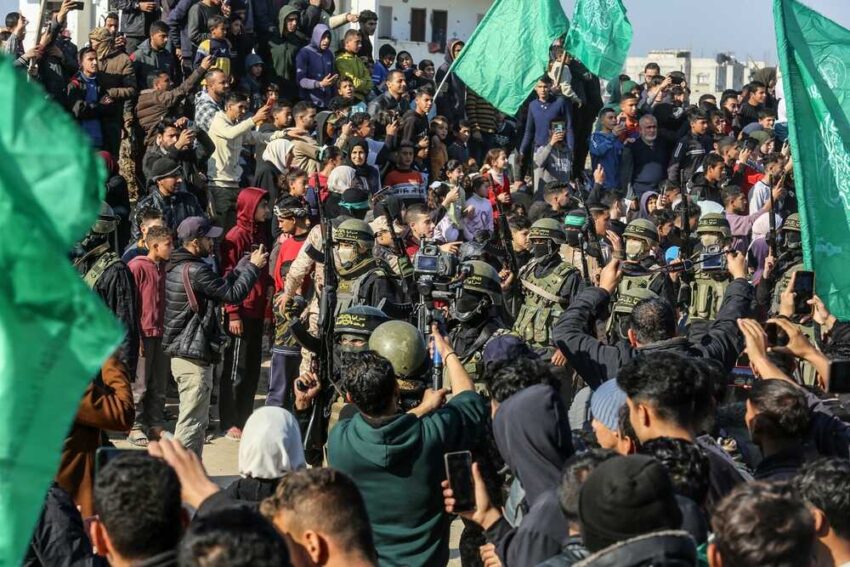(LibertySociety.com) – The famine declaration in Gaza is a historic and catastrophic escalation in the humanitarian crisis, with over half a million people facing starvation due to conflict-driven aid restrictions.
Story Highlights
- First-ever official famine declaration in Gaza by the IPC.
- The famine declaration sparked international debate and calls for ceasefire.
- Israel disputes the famine determination, continuing military operations.
- UN agencies blame Israeli restrictions for the humanitarian crisis.
Unprecedented Famine Declaration
The Integrated Food Security Phase Classification (IPC) declared famine in Gaza for the first time on August 22, 2025. This announcement, backed by several UN agencies, underscores the severity of the humanitarian crisis in the region. More than half a million Gazans face catastrophic hunger as Israeli military operations against Hamas intensify. The declaration has prompted international debate, with UN agencies pointing fingers at Israeli restrictions as the cause of the crisis, while Israel continues to dispute these claims.
This famine declaration is an indictment of the ongoing conflict and the severe restrictions on aid. The humanitarian catastrophe unfolding in Gaza is rooted in a prolonged military campaign and stringent blockade measures imposed by Israel and Egypt. These conditions have decimated Gaza’s infrastructure, leaving the population in dire need of aid. The famine declaration has sparked a renewed call for ceasefire and unrestricted humanitarian access to prevent further loss of life.
Historical Context and Escalation
Gaza’s current crisis is a culmination of years of conflict and blockade. Since Hamas took control of Gaza in 2007, Israel and Egypt have imposed stringent blockades citing security concerns. The situation deteriorated significantly after Hamas’ attack on Israel in October 2023, leading to a severe Israeli military response. This response, characterized by a prolonged siege, has resulted in widespread displacement and a collapse of essential services, making Gaza heavily reliant on humanitarian aid.
Warnings of imminent famine have been escalating since late 2023. Humanitarian agencies have repeatedly sounded the alarm about the deteriorating food security and malnutrition crisis, which culminated in the 2025 famine declaration by the IPC. These warnings were largely ignored as the political and military objectives overshadowed humanitarian needs, resulting in the current dire situation.
Key Stakeholders and Dynamics
The situation in Gaza involves multiple stakeholders with varying interests. Hamas, controlling Gaza, is motivated by resistance to Israel and maintaining its hold over the region. Israel, on the other hand, aims to eliminate Hamas, citing security concerns and the October 2023 attack as justification. UN agencies and humanitarian organizations focus on civilian protection, advocating for aid access and adherence to international law. The international community remains divided, with some countries supporting Israel and others calling for increased humanitarian intervention.
The power dynamics in this conflict are stark. Israel’s control over borders and military might contrasts with Hamas’ control within Gaza. UN agencies rely on Israeli cooperation for aid delivery, while civilians bear the brunt of the conflict, caught between the warring parties with little agency or power to influence outcomes.
Impact and Implications
The short-term implications of the famine are dire, with immediate risks of mass starvation and preventable deaths, particularly among vulnerable populations such as children, the elderly, and the disabled. International pressure on Israel to allow aid access and cease military operations is mounting. However, Israel shows no signs of slowing its campaign, escalating the risk of further civilian casualties.
Hamas must return the hostages now or face death in Gaza City https://t.co/8bW9hbmAXJ pic.twitter.com/e3RCt3WWP6
— New York Post (@nypost) August 23, 2025
Long-term, the crisis threatens to entrench humanitarian suffering, potentially leading to regional destabilization. The collapse of Gaza’s economy and food systems could result in a breakdown of social cohesion and public health infrastructure. Internationally, Israel’s reputation may suffer, facing increased scrutiny over its actions in Gaza. The humanitarian crisis highlights the complex interplay of armed conflict, humanitarian law, and the politicization of aid in one of the world’s most challenging conflict zones.
Copyright 2025, LibertySociety.com .
Click this link for the original source of this article.
Author: Editor
This content is courtesy of, and owned and copyrighted by, https://libertysociety.com and its author. This content is made available by use of the public RSS feed offered by the host site and is used for educational purposes only. If you are the author or represent the host site and would like this content removed now and in the future, please contact USSANews.com using the email address in the Contact page found in the website menu.





